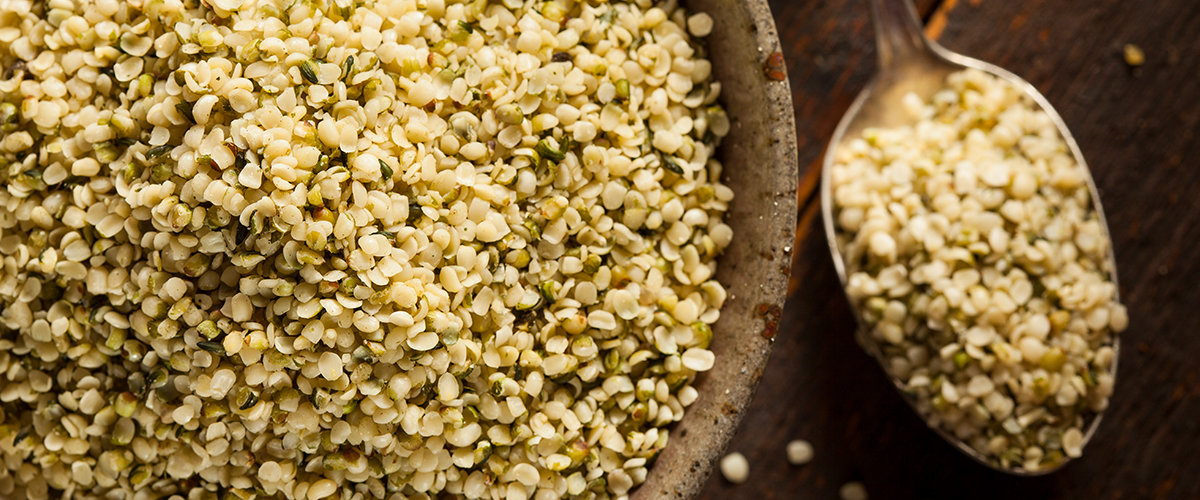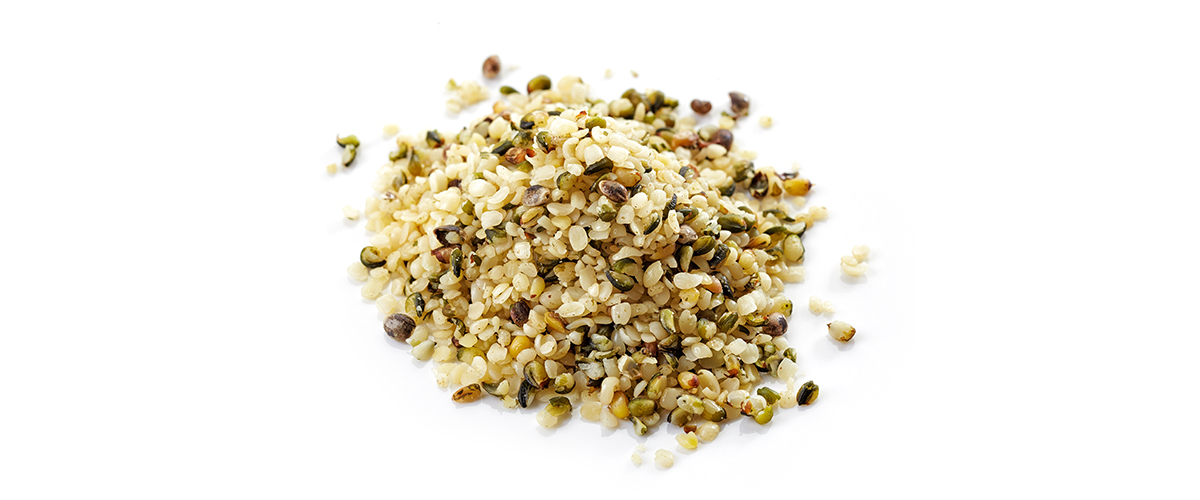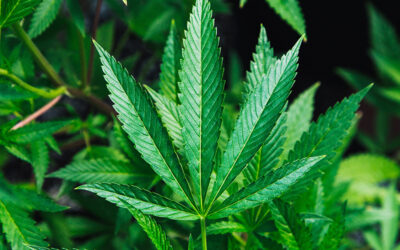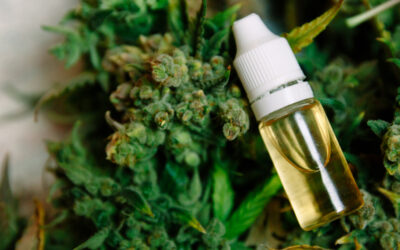Hemp is a nutrient dense superfood that makes it easy to get the important vitamins, minerals, and more that you need to be healthy each day. Here we take a looks at hemp benefits for you and the planet.
More and more, consumers are turning to all-natural products to boost the nutritional value of their diets. It is hard to find a more nutrient dense source than hemp. For that reason, hemp has been increasingly found as an ingredient in products from natural food stores and neighborhood grocery stores around the world.
Hemp has been an important source of nutrition for humans for thousands of years thanks to its significant nutrient content. Considered a superfood for its nutritional content, hemp foods continue to be popular as a way for health conscious consumers to support their diets with the vitamins, minerals, and more necessary for a healthy body.
Hemp seeds can be eaten by themselves for a healthy snack or added to smoothies, yogurt, salads, acai bowls, and more to give them a nutrient boost. Hemp seeds, the most popular source of hemp food products, have a light, nutty flavor that can compliment a number of meals. Hemp seeds can also be used to produce food products like hemp milk, hemp seed oil, and hemp-based protein powder.
Here, we look at the nutritional benefits of hemp and unique ways to add hemp to your diet.
What Nutrients Does Hemp Provide?
Hemp benefits include the incredible nutrient content they provide. Adding hemp to your meals and snacks is a fantastic way to boost your diet and get many of the vitamins, minerals, and more that you may be missing in what you eat each day.
Hemp contains an extensive list of naturally occurring vitamins, including vitamins A, C, and E. Also present are B complex vitamins like riboflavin, thiamine, and niacin. Hemp further contains vitamins that are not sufficiently present in most modern diets, like beta carotene, helping users gain the nutrients they need to maintain health. Hemp is likewise a source of minerals like zinc, potassium, calcium, phosphorus, iron, and magnesium.
Protein in your diet is essential in the receiving of amino acids, but it’s important that we obtain protein from the right sources. Eating even small amounts of red meat has been warned against by health officials. Instead, essential amino acids can be obtained through plant sources like hemp, which contains all 20 amino acids – including the 9 essential amino acids our body can’t make on its own.
The one fat you can never get enough of is Omega 3, but modern diets typically use other, less healthy fats. While both Omega 3 and 6 fatty acids are essential to human health, they should ideally be consumed at a close ratio of around 3:1. Eating the right kind of Omega 6 fatty acids, like gamma linolenic acid (GLA), a plant based Omega 6 fatty acid found in hemp at the 3:1 ratio suggested, can reduce the negative effects of high fat diets.
The shelled seeds of the hemp plant contain about 35 percent essential fatty acids and 33 percent plant protein. They are also rich in soluble and insoluble fiber. These high levels of protein, fiber, and healthy omega fatty acids mean that using hemp foods can benefit you by helping aid proper digestion and promoting healthy eating patterns, which may lead to weight loss.
According to the USDA National Nutrient Database, one tablespoon or 30 grams of hemp seeds contains:
- 166 calories
- 9.47 g of protein
- 14.62 g of fat
- 2.6 g of carbohydrates (including 1.2 g of fiber and 0.45 g of sugar)
- 21 mg of calcium
- 2.38 mg of iron
- 210 mg of magnesium
- 495 mg of phosphorus
- 360 mg of potassium
- 2.97 mg of zinc
You can learn more about the nutritional benefits of hemp seeds here.
What Type of Hemp Foods are Available?
Health food stores and some grocery markets carry hemp food products from hemp seeds and hemp snacks to hemp seed oil to hemp protein, and more, giving you a range of options for adding nutritional hemp benefits to your diet.
Hemp Seeds
Hemp seeds, harvested from the flowers of the hemp plant, are a valuable nutritional source. These small brown seeds have a mild nutty flavor. Hemp seeds can be eaten whole and have a crunchy texture that make them a tasty, health conscious snack, perfect for a nutritious boost between meals.
In many cases, though, hemp seeds are shelled, or hulled, to expose the softer inner “heart.” These hemp hearts can also be eaten by themselves or added to your favorite healthy foods, like salads, smoothies, yogurt, cereals, oatmeal, and more.
Hemp Snacks
Hemp snacks include handy edibles like delicious energy bars that combines hemp seeds with natural ingredients like blueberries, dates, apple, almonds, and lavender oil. Pack one in your purse or laptop bag for a healthy snack between meals or bring one to the gym or on your next hike to give you the energy you need to hit your next peak.
Hemp Protein
Hemp protein is a valuable food for those mainly interested in a natural plant-based source of protein. Made from milled hemp seeds, hemp protein comes in the form of a nutty flavored powder that can be dissolved in liquids and blended into smoothies. Hemp protein can also be used as a partial flour substitute in many recipes for baked goods.
Hemp Seed Oil
If you’d rather add the nutritious benefits of hemp to your diet in the most convenient way possible, then hemp seed oil could be right for you. Hemp seed oil can be incorporated into your diet as a nutritious replacement to other oils like olive oil. Hemp seed oil is also available in soft capsule form, allowing you to add hemp seed oil into your existing daily vitamin routine to seamlessly incorporate hemp into your diet.
How to Use Hemp in Your Daily Diet Plan
Hemp seed hearts and hemp protein powder are versatile ways to add the benefits of important vitamins and minerals, fiber, protein, and fatty acids to your system. You can sprinkle hemp hearts on any meal or snack that you want to boost the nutrition of. Similarly, you can mix hemp protein powder into foods and beverages or even as a partial flour replacement for making baked goods.
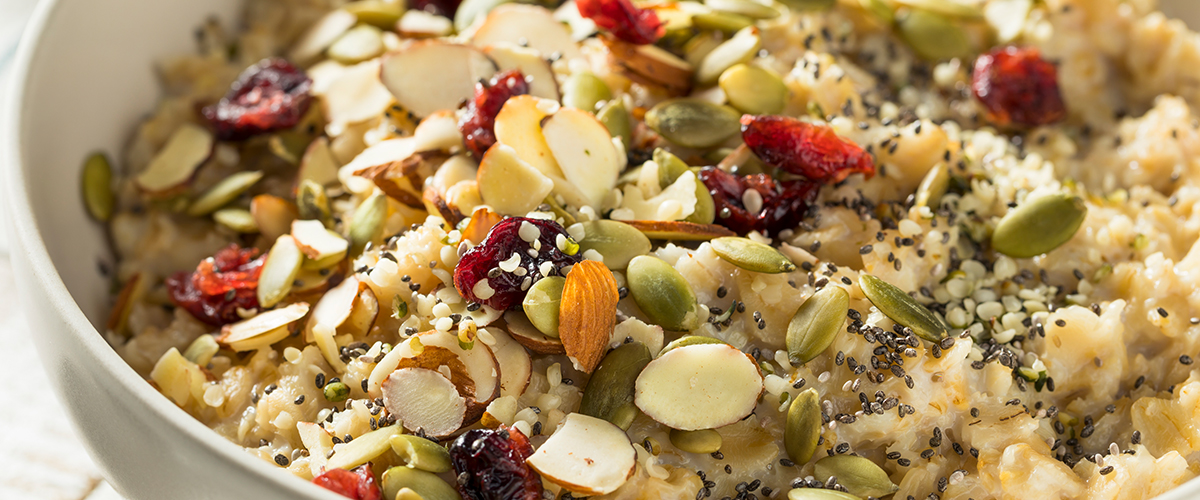
Here are just a few suggestions on how to add these products to your diet each day.
Hemp Seed Hearts:
- Top on salads
- Sprinkled on avocado toast
- Top on acai bowls or yogurt and fruit
- Blended into oatmeal and cereals
- Added to sandwiches
- Sprinkled on English muffins
- Topped on a baked potato
- Or added to anything you want to boost with nutrients, protein and fiber
Hemp Protein Powder:
- Baked into muffins and breads
- Blend into smoothies
- Mixed into oatmeals and cereals
- Bake into brownies
- Add to pancake or waffle batter
- Or anything you want to boost with nutrients, protein and fiber
Hemp Benefits for the Planet
Hemp not only benefits you and me – it also helps the planet. Hemp can be grown without environmentally damaging herbicides, pesticides, and chemical fertilizers. Hemp also uses less water and less land to grow than many conventional commercial food crops.
Unlike many food crops, hemp byproducts can be used for a number of industrial uses. Not only can hemp help feed the world, it can also be used to replace things like plastic, gasoline, paper made from wood pulp, textiles from cotton, and more, adding to its sustainability benefits for the planet.
Is Hemp the Same as Marijuana?
Both hemp and marijuana are part of the cannabis family of plants. The two plants share many similarities, but differ on an important point. While marijuana contains high levels of THC, the compound in cannabis that gets users high, hemp contains only trace levels of THC. That means that adding hemp to your diet won’t get you high and is safe for everyone in your family to eat.
Unlike marijuana, which is grown to be used medically and recreationally to have high levels of THC, hemp is grown for its nutrient rich seeds, its CBD oil, and its strong fibers. Marijuana is federally illegal and closely regulated by specific states. Hemp foods, on the other hand, are legal in all 50 states.
Shop for Hemp Food Products
You can learn more about cannabis basics in our Cannabis 101 section.

